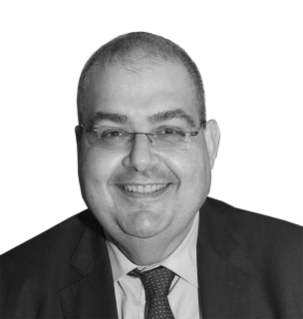We are witnessing an unexpected success of the urbanisation that the digital society was supposed to diminish. Teleworking was the promise when the Internet first appeared and reducing the need for physical contact would play to the advantage of smaller towns. However, the bond with close proximity cannot be severed; life does not revolve around production alone. It is my belief that by 2050 work hours are likely to be just six or four hours because of rising productivity. People will be doing more in their leisure-time and want to spend it socialising. If they live in a densely populated place, it will provide more functions. Cities facilitate.
In Europe, the anthropic situation is developed primarily in capital cities, a phenomenon that condenses administrative or economic capitals, with a risk of impoverishing the fabric of intermediary cities. A larger number of hubs would be more favourable and we should begin to think more about networks and less about poles. Recycling, energy and eco-friendliness are three interconnected aspects. Big cities will become bigger, medium-sized ones will tend to grow and the number of cities will rise.
There are seven billion of us and this is going to rise to ten billion. Progress cannot be halted and evolution will happen somehow. Some may be left behind and we need to know what the politicians will do if this happens, i.e. who sets the rules for the exploitation of land, our scarcest resource, as these are what determines success in a competitive phase.
It is hard for Europeans to accept the concept of consuming more land. Today’s challenge for developers of the city is far harder and more competitive than 20/50 years ago. We are emerging from a century in which houses were built by families and passed down for the next generations to live in. Today, they are objects serving a period in our lives before we move on to another one. We must realise that the built heritage will have to share more and have a greater capacity for rotation and functions. I am not an urban planner but facilitating rotation within a given volume also requires an ability to adopt flexible volumes.
Cities based on incomes polarised at the outer edges of distribution struggle with quality of life, safety, housing, environment and health. This threatens the prosperity of cities but also the economy and the stability of the democratic institutions. Income distribution is not a sociological issue but an empirical and statistical one. What is happening today is that the distribution of income within generally solid urban areas has fewer inequalities than geographical income distribution.
Citizenship stands for freedom, opportunity and rules. The concept does not apply to the population of a certain place, rather it means participating in a society of prerogatives, one capable of free expression and of people free to realise their potential in their work and personal lives. Societies only prosper when we obey the rules, those of civil coexistence that benefit all. I would like to be linked emotionally to a city not by value principles. I would like the values to exist across all the European cities and feel I am a European citizen whatever city I decide to live in, and perhaps move several times in my lifetime.
The best cities of the future will be those with few differences in terms of income, good culture, a good education system, an economy that works and a fair amount of diversity because biological and economic diversity produces more. Successful cities make sure that public and private leadership is contestable and that social advancement is possible. Cities with too many closed circles are almost certainly destined to lose out.
Giuseppe Russo (1961, Turin, Italy), economist. In July 2014, he became director of the Centro Einaudi. He founded and runs STEP Ricerche, an applied economics research company. Since 2011 he has been contributing to the Report on the Global Economy and Italy, edited by Mario Deaglio.


